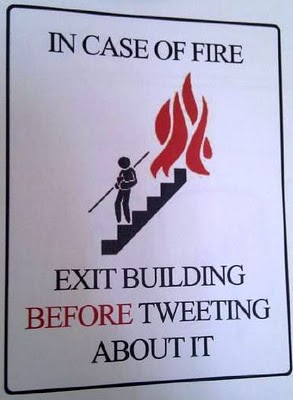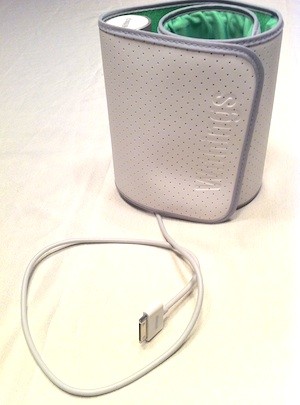Exploring the impact of broadband and technology on our lives, our businesses, and our communities.
U.S.Broadband: Almost as good as Northern Balochistan!
Long time readers of this blog know that I have a running joke about comparing the state of U.S. broadband infrastructure to other countries. The latest insult is Northern Balochistan (part of Pakistan), which is getting a 1,100 kilometre fiber build. Meanwhile, our rather measly national goal is 4 meg down, 1 meg up, which won't support work and business from home applications and is barely adequate for Netflix.
Technology News:
Community news and projects:
Netflix raises prices
Netflix has raised prices. I got my notice via email yesterday. They have unbundled streaming from the traditional DVD via mail, and you now can buy one service, the other, or both. The DVD service is still more expensive than streaming, which suggests that the cost of mailing DVDs remains significant compared to the cost of buying bandwidth to drag streaming content across the Internet. The pricing change also suggests that many customers have largely transitioned away from DVDs to streaming content, and Netflix is giving those customers, that don't care about getting DVDs, a break on price.
Services like Netflix, Roku, and Hulu are going to continue to put tremendous pressure on the providers of "little broadband:" the DSL, cable, and wireless providers. These old systems are running out capacity, and it's a race to the bottom for these firms. They can keep trying to upgrade the old systems, but the more they spend, the faster their customers use up the bandwidth.
Don't believe that? Take a look at the cellular data services market. AT&T and Verizon have abandoned their unlimited data plans and have put bandwidth caps on their services because they can't keep up with customer bandwidth usage otherwise. This makes the concept that rural communities will all get their broadband via the cellular providers rather silly, unless you subscribe to the notion that rural folks should be relegated to what amounts to the 21st century version of dial-up.
Technology News:
Knowledge Democracy:
Facebook and LinkedIn: Be afwaid...be vewy vewy afraid...
I just got an invite to Google+, the new Facebook-like offering from Google. So I created an account, and at first glance, I would say Facebook and LinkedIn have a lot to worry about. Note, however, that Google has a very mixed track record of success outside search and mapping. Anyone remember Orkut? It never caught on the U.S., although it has been successful in some other countries like India. If Google can do a better job of supporting business-oriented uses of Google+, both Facebook and LinkedIn will have to work very hard to keep their customer base.
Technology News:
Knowledge Democracy:
iPad user satisfaction increases over time
User satisfaction with most gadgets tends to decrease after about 13 weeks of use, but a new study by a University of Missouri researcher shows that people like their iPads MORE after that period of time--more than when they first bought it.
iPad use patterns are also different from traditional laptop and desktop computers, with use of iPads peaking in the evening, unlike other computers. The iPad and similar tablet devices are going to create additional strains on existing antiquated copper-based broadband infrastructure as users use the devices to watch movies, play interactive games, and browse bandwidth-heavy multimedia news sites.
Technology News:
Exit building BEFORE tweeting about it

Found on the Internet...I nearly spit out my coffee when I saw this....
Technology News:
Internet addiction shrinks your brain, and we need more money to see if that is a bad thing
I spent twelve years working at a major research university, so I have a pretty good idea how some kinds of research works: Identify an area no one knows much about (so no one can refute anything you say), like "Internet addiction." Then run some inexpensive study that turns up some really scarifying outcome ("Too much Internet causes brain shrinkage!!"). Hedge your bets by indicating "we don't really know what this means." Then announce that you really need a lot more money for a really big study that will take years and scads of grad students.
And no, I'm not making this up.
Technology News:
Broadband and the emerging revolution in health care

Take a look at this blood pressure cuff that connects directly to an iPod Touch, an iPhone, or an iPad. The data is stored and displayed on your own device, but the data is also sent to the manufacturer (Withings), where it can be shared with a health care professional. I'm not too excited about sharing my health information with a software firm, but what is important is that many of the standard diagnostic tools available to health care professionals are about to make managing your own health much easier, as well as giving you the tools to give your doctor much better information about your health. Doctors may be subscribing high blood pressure medicine based on just a few BP readings taken days apart, in the office, where the "white coat" effect on blood pressure is well known (your blood pressure is typically higher in the doctor's office, where you may be nervous about negative results). Compare that approach to health care to being able to easily take daily BP readings over a period of weeks or months to give a much better look at overall blood pressure. Couple this cuff with devices that reads blood sugar, heart rate, blood oxygen levels, and some other blood tests, and it will be possible to spend much less on doctor visits while actually getting better diagnoses.
Technology News:
Danville: Open access quietly working, attracting jobs, lowering costs

Here is an article about the City of Danville open access network (called nDanville). nDanville started as an open access network in late 2007, so it is in its fourth year. It was the first municipal open access effort in the United States, and has been quietly cutting costs for Internet and VoIP phone service by as much 80% for businesses and institutions using providers on the nDanville fiber network. It has also been bringing jobs and businesses to the community. One of the major economic developments in which nDanville played a key role was the re-purposing of the "White Mill" building. Just a couple of blocks from downtown, the White Mill building was once one of the largest textile plants in the country. But it was closed years ago, and the multi-story building sat empty until it was purchased last year. It is undergoing a complete renovation as a high tech data center, and access to nDanville fiber was crucial to closing the deal. nDanville has also helped attract a specialty PC manufacturer to the community, and more broadly, just about every business using providers on the nDanville network have enjoyed substantially lower costs for VPNs, Internet access, and voice services. The local hospital recently switched to an IP TV provider on nDanville and is enjoying substantial monthly savings from the switch.
nDanville is operated with a staff of two people as part of the City Utilities department. All services to businesses and residents are provided by private sector providers that use nDanville to transport those services over a high performance active Ethernet fiber network. nDanville offers standard 100 megabit, Gigabit, and 10Gigabit connections. Design Nine provided the City with the original business, financial, and technical planning with the network, and continues to assist the City with the project.
Technology News:
Community news and projects:
Broadband Information:
Copper prices make fiber interesting
With the price for copper hitting $4/pound, the biggest copper mine in the world is hanging on poles in the U.S. Copper thieves are actually knocking over poles to steal the copper cable in Antioch, California, but copper theft is a problem all over the U.S. The high price of copper and the steadily decreasing price of fiber makes fiber less expensive in new construction, and of course, with fiber, you have the added benefit of being able to expand capacity as needed.
Technology News:
Facebook: The go-go days are over
Facebook growth has fallen dramatically, signaling that nearly everyone who is likely to have a Facebook account has one. The U.S., Canada, Russia, Britain, Norway, and Russia all posted lower numbers of new users and higher numbers of closed accounts. Like the blogging bubble of a few years ago, a lot of people have tried Facebook and have found they don't have much use for it. That's not meant as a criticism--I use Facebook for family stuff and like it--but it is a reality of online services going all the way back to the early growth of email. No online service can sustain double digit growth forever, and AOL learned this the hard way. What will be interesting to watch is if Facebook can institute internal cost and staff controls that keep the company in the black as their subscriber base stabilizes.